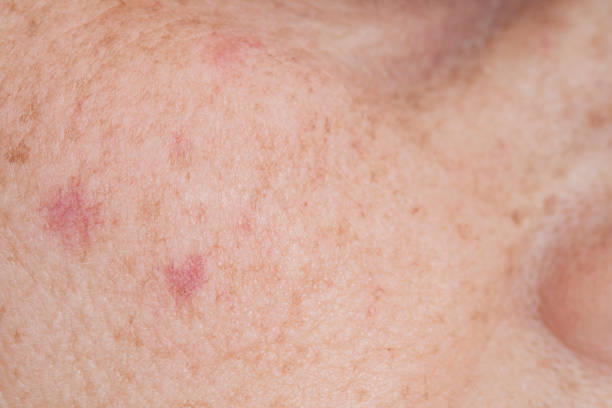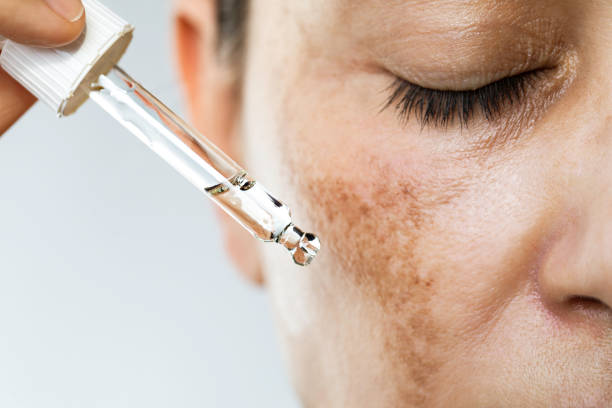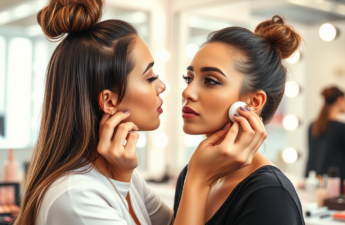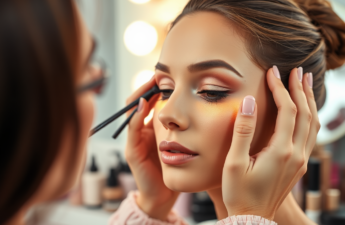Are dark spots on your skin affecting your confidence? You’re not alone. Many people struggle with hyperpigmentation, but the good news is that there are effective solutions to help fade these blemishes. In this comprehensive guide, we’ll explore the causes of dark spots, effective treatments, preventative measures, and much more to help you achieve clearer skin.
Understanding Dark Spots: What Are They?

Dark spots, also known as hyperpigmentation, are patches of skin that appear darker than the surrounding skin. This occurs due to an excess production of melanin, the pigment responsible for skin color. The causes of dark spots can vary from sun exposure and aging to hormonal changes and skin injuries. These spots are not harmful, but they can be a cosmetic concern for many individuals.
Hyperpigmentation can manifest in different forms such as age spots, melasma, and post-inflammatory hyperpigmentation (PIH). Age spots, also known as liver spots, usually appear on areas of the skin that have been exposed to the sun over the years. Melasma, often related to hormonal changes, is more common in women and appears as brown to gray-brown patches. PIH occurs after an injury or inflammation of the skin, like acne, and results in darker spots that linger long after the initial wound has healed.
Effective Treatments for Dark Spots
Treating dark spots involves both at-home remedies and clinical procedures. Here is a list of some effective treatments:
-
Topical Creams:
Products that contain ingredients like hydroquinone, vitamin C, retinoids, and alpha hydroxy acids can help lighten dark spots. These creams work by inhibiting melanin production and promoting skin cell turnover. -
Chemical Peels:
Salicylic acid, glycolic acid, and lactic acid are commonly used in chemical peels to exfoliate the skin and reduce hyperpigmentation. These treatments can be performed at home or by a dermatologist. -
Laser Therapy:
This procedure uses targeted laser light to break up melanin clusters in the skin. It is a more aggressive treatment and usually requires multiple sessions for best results. -
Microdermabrasion:
This non-invasive treatment removes the outermost layer of skin, promoting new skin growth and reducing dark spots. It is usually recommended for superficial hyperpigmentation. -
Natural Remedies:
Ingredients like aloe vera, green tea extract, and licorice extract are known for their skin-lightening properties and can be found in various over-the-counter products.
Preventing Dark Spots
Prevention is always better than cure. Here are some tips to prevent dark spots from forming in the first place:
First and foremost, diligent sun protection is crucial. Use a broad-spectrum sunscreen with an SPF of at least 30 every day, even on cloudy days. Wear protective clothing like hats and sunglasses, and try to stay in the shade during peak sun hours. Consistent sun protection can significantly prevent the formation of new dark spots.
Avoid picking at your skin, as this can lead to inflammation and subsequent hyperpigmentation. If you have acne or other skin issues, seek appropriate treatment to prevent lesions from turning into dark spots. Additionally, maintaining a healthy skin care routine that includes cleansing, exfoliating, and moisturizing can help keep your skin in optimal condition.
The Role of Diet and Lifestyle
Your diet and lifestyle choices can also impact the appearance of your skin. A diet rich in antioxidants, vitamins, and minerals can support skin health and prevent discoloration. Foods high in vitamin C, vitamin E, and beta-carotene, such as citrus fruits, nuts, and leafy greens, are particularly beneficial for your skin.
Hydration is equally important. Drinking plenty of water helps to flush out toxins and maintain skin elasticity, which can reduce the likelihood of dark spots. Adequate sleep and managing stress are also critical, as stress can exacerbate skin issues, including hyperpigmentation.
Avoid smoking and excessive alcohol consumption, as these habits can negatively affect your skin’s appearance. Exercise regularly to increase circulation and promote healthy skin cell turnover.
Consulting a Dermatologist
While at-home treatments and preventative measures can significantly improve your skin, sometimes consulting a dermatologist is necessary. A professional can provide personalized advice and prescribe stronger treatments not available over the counter. Dermatologists can perform in-office procedures like laser therapy and chemical peels that offer more dramatic results.
Don’t hesitate to seek professional help if you notice persistent dark spots that do not respond to home treatments, or if you are unsure about the cause of your hyperpigmentation. An expert evaluation can prevent misdiagnosis and ensure that you receive the most effective treatment for your skin type and condition.
Conclusion
Saying goodbye to dark spots is achievable with the right knowledge and approach. By understanding the causes and utilizing effective treatments, you can significantly reduce the appearance of hyperpigmentation. Preventative measures and a healthy lifestyle further support your journey to clear skin. For persistent or severe cases, consulting a dermatologist can provide additional solutions. Remember, patience and consistency are key in the fight against dark spots.
FAQs
What causes dark spots on the skin?
Dark spots, or hyperpigmentation, are caused by an excess production of melanin. This can occur due to sun exposure, hormonal changes, aging, and skin injuries or inflammation.
Are dark spots permanent?
No, dark spots are not necessarily permanent. With proper treatment and preventative measures, you can significantly reduce their appearance. However, consistency is key to achieving the best results.
Can I prevent dark spots from forming?
Yes, you can prevent dark spots by using sun protection daily, avoiding skin injuries, maintaining a healthy skincare routine, and leading a healthy lifestyle that includes a nutritious diet and adequate hydration.
Are natural remedies effective in treating dark spots?
Several natural remedies are known for their skin-lightening properties, such as aloe vera, green tea extract, and licorice extract. While they may not be as potent as clinical treatments, they can still offer noticeable improvements over time.
When should I see a dermatologist for dark spots?
You should see a dermatologist if your dark spots do not respond to over-the-counter treatments, if you are unsure about the cause of your hyperpigmentation, or if you want professional advice and stronger treatments for better results.



